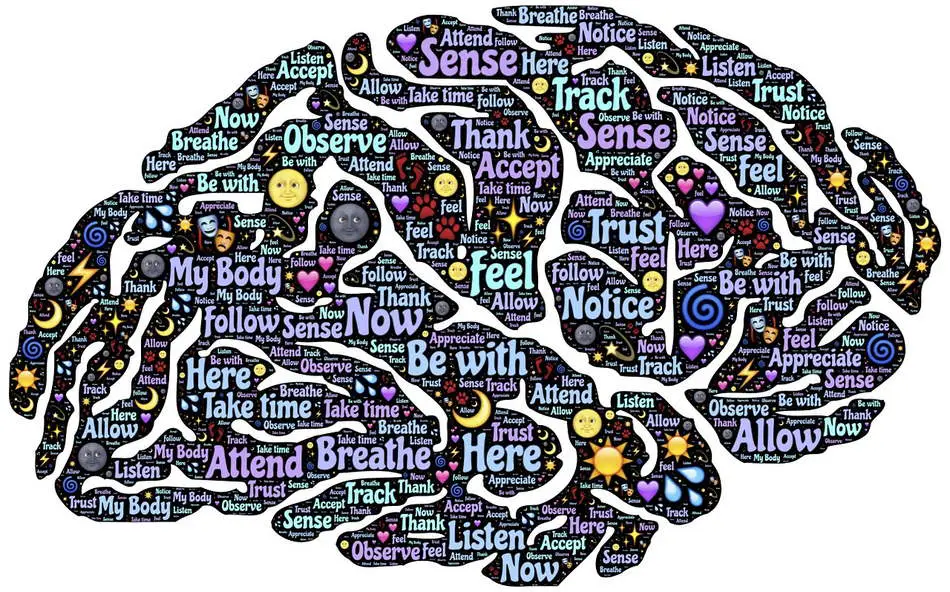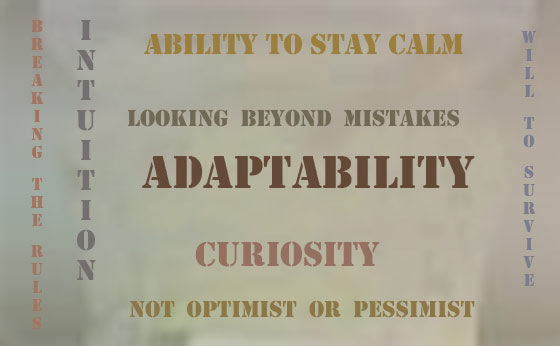Survivors don’t just survive something, they thrive after being exposed to significant stress. They feel prepared and able to handle whatever comes their way.
Studies show that people who have survived past traumatic events are more likely to deal with other difficult experiences in their life productively. They may learn how to manage their emotions better or develop skills they already had but didn’t use enough.
They may also be more motivated and focused than before because they understand the value of what they were protecting or pursuing. In fact, one study found that college students who studied for an hour per day after surviving a major trauma were twice as likely to graduate as those who spent less time studying.
There are many different definitions of a “survivor,” but research shows that it’s not only someone who lived through a deadly event like a natural disaster, like when a hurricane devastates Texas or California, or a terrorist attack occurs somewhere around the world. It can include anyone who experienced a serious injury or loss, even if you’re still living.
What are survivor characteristics?

Survivor characteristics can be seen in many different aspects of life. From emergency situations to everyday challenges, there are certain qualities that are common among survivors. These qualities can be cultivated and developed in order to ensure survival in situations where the odds are stacked against you.
One of the most important characteristics is the ability to remain calm and focused, even when facing extreme adversity. This skill is essential for staying focused and making sound decisions even when everything appears to be going wrong. It is also important for maintaining a clear view of the situation and assessing risks without panicking.
Another key trait of a survivor is the ability to recognize patterns, both in the environment and in their own behavior. This helps them identify potential threats and act early to avoid them. It is also important for developing creative solutions to problems and finding ways to overcome obstacles.
Survivors also tend to have strong problem-solving skills. They are able to quickly identify problems, develop creative solutions, and implement them. This is important for surviving difficult situations and ensuring their safety.
Finally, survivors have the ability to stay positive even when things look bleak. They are able to remain hopeful and take steps to improve the situation, no matter what the odds may be. This is essential for finding success in difficult times.
These are just some of the key survivor characteristics that can help someone stay safe and survive in any kind of situation. Cultivating and developing these skills can be immensely beneficial in dangerous or difficult times.
Survivor Personality
In recent years, the concept of a “survivor personality” has become increasingly popular in the psychological research community. This concept derives from the idea that some people have the capacity to cope better with difficult life events than others. It suggests that there are certain personality traits that make individuals more likely to survive and thrive in challenging situations.
In order to better understand the concept of survivor personality, psychologists have conducted a number of research studies. These studies have examined the psychological characteristics of individuals who have experienced traumatic events and have been able to cope with and survive them. The results of these studies have revealed a number of key traits that are associated with survivor personalities.
One of the primary traits identified in survivor personalities is resilience. Resilience is defined as the ability to bounce back from adversity and difficulty. In other words, individuals with resilient personalities are able to confront and handle adversity and difficult life events in a constructive manner.
Other important traits associated with survivor personalities include self-efficacy, self-control, self-awareness, and optimism. Self-efficacy is the belief that one can succeed in any situation. This includes the belief that one can overcome obstacles, deal with difficult situations, and avoid undesirable outcomes. Self-control is the ability to regulate one’s thoughts, feelings, and behaviors in order to achieve desired goals. Self-awareness is being conscious of one’s own strengths and weaknesses. Finally, optimism is a psychological trait characterized by the belief that good will come out of any situation.
Finally, research on survivor personalities has also revealed that individuals with these traits tend to be more successful in their personal and professional lives. Specifically, survivors with these traits are more likely to be successful in work and achieving professional goals. In addition, survivors with these traits tend to have better relationships with friends and family.
Overall, research on survivor personalities has revealed that these psychological traits are associated with higher levels of success in life. Individuals who possess these traits are more likely to survive and thrive in challenging situations. Therefore, if you are looking to succeed in life, it is important to work on developing these psychological traits.
Survivors also tend to think positively.

Beyond avoiding pre-existing conditions, such as cancer or mental health issues, survivors also spend time thinking about life in a positive way. They focus on their strengths and what they can do rather than what they have lost.
This is called refocusing. It helps them feel more in control and takes away some of the stress that may otherwise make it harder to start living again.
Researchers found that this ability to reinterpret negative experiences comes from our own internal resources, not necessarily those provided by external sources.
These resources include things like faith, hope, motivation, self-confidence, and strength of will.”
It was identified over two decades ago but still holds true today. Having these tools can help you deal with any situation, whether it’s related to your work or personal life.
Similar to having a good cry, developing these skills can help you move forward after a setback. And just like when you learn how to swim or ride a bike, people who lack this inner resource are often surprised at how easily they recover.
There is no one right way to cope, but learning how to identify and use your own resources can give you many options for moving forward.
A survivor doesn’t let his/her problems control him/her.
Another important characteristic is that a survivor doesn’t allow past mistakes to determine their future. He or she may make mistakes, but they learn from them and don’t keep making the same ones over and over again.
A survivor knows what buttons to press with other people and keeps track of who likes you and why. They recognize when someone else needs your help and makes sure they get it.
They aren’t too proud to ask for help either. When things go wrong, a survivor tries to fix the problem instead of avoiding anyone because he/she could use the rest!
That way, he/she won’t lose touch of how important others are to him/her.
Finally, a survivor learns from past mistakes and uses them to become better.
Another important trait is learning from your failures. A lot of people make the mistake of thinking that because they failed before, that means they should not try again. But when you fail, it is an opportunity to learn what didn’t work and avoid repeating those things!
By acknowledging and understanding your failures, you can move on to more productive behaviors or strategies. You may even find something new you could add to your success toolbox.
Many successful people talk about how failing helped them grow. Business owners say that after spending lots of money and time marketing their business, they were willing to risk it all by going out of business for a while.
They learned from their failure and now they have less expensive lessons under their belt.
For example, after realizing his dream of owning a house, Tom Brady went back and studied how professional football teams use statistics to determine which players are needed at any given moment. He has used this knowledge in the way he runs his career as one of the most dominant quarterbacks ever.
Survivors resiliency. They are able to overcome adversity.
There is a reason why survivors are such an inspiration to others. It’s because they show strength in difficult situations.
Survivors know what it means to be without help, resources, or opportunities. Therefore, when the opportunity does come along, they are already prepared.
They have practices that help them deal with bad things by using strategies like putting their best face forward and learning how to manage their emotions.
When you’re surrounded by people who lose hope, this can make you feel less hopeful yourself. But for someone who has these skills, it gives you more motivation to keep trying. You see people around you giving up and it boosts your confidence.
It also helps you appreciate every bit of time you do have because you could easily be living under a blanket of depression and anxiety.

Survivors are optimistic. They believe in themselves and their abilities.
Survivor attitudes play a big part in your mental health. When you feel positive about yourself, you’re more likely to handle life’s challenges well.
Optimism is a quality that most people have at some time during their lives. It seems like a normal thing to be happy with what you’ve got, but it isn’t.
Normal people are just not very conscious of how much optimism they possess under the surface.
People who are really optimistic don’t worry too much about bad things that could happen. Because they expect good things to keep happening, they don’t get upset as easily.
Survivor qualities go beyond just being optimistic though. True survivor also has lots of skills and resources they use to cope with difficult situations.
Survivors are determined. They know what they want and how to achieve it.
There is a reason that survivors survive dramatic experiences like being abducted, kidnapped, or robbed.
They develop strategies for staying focused and motivated during difficult times. These strategies help them cope with the challenges they face while also helping them focus on important tasks.
Research shows that people who use this kind of coping get the same level of relief as those who have experienced more serious trauma. This suggests that even if you’ve never been through something traumatic, you can still learn helpful skills.
It’s possible to develop these resilience-building habits in your life, but only if you recognize them.
Survivors are persistent. They don’t give up easily.
There is a story behind every survivor. When things go wrong, they persevere. Sometimes it takes hours, days, or even years, but eventually, the perseverance pays off.
Survivors understand that you have to keep going no matter what. You have to believe in yourself and your talents before others will trust you.
It’s hard to maintain confidence when people around you aren’t believing in you, but survivors develop inner strength. They learn how to motivate themselves.
A lot of survivors work alone, so they learn how to manage their time effectively.
When something bad happens, there’s a reaction, then comes denial, followed by anger, sadness, and finally acceptance. For a survivor, this process goes much more quickly than for someone who isn’t familiar with it.
There’s a reason why these traits are considered markers of success. It’s because they help you succeed elsewhere, and once you’ve succeeded somewhere else, you’re able to apply those lessons to other areas of your life.
Survivors are resourceful. They use whatever resources are available to them.
They do not give up. Even when things seem completely hopeless, they keep trying until they find a way out or someone helps them along that path.
Another important trait is self-awareness. While it may be difficult for others to assess your state of mind because you only share what you choose to with people, you must understand how you feel about yourself.
You cannot assume anything about yourself. You have to work hard to learn who you are as a person and what strengths you possess. This can take hours, days, weeks, or even years depending on how much you need to recognize about yourself.
It takes time to develop these skills but once you do, you will know just what to do in any situation.
